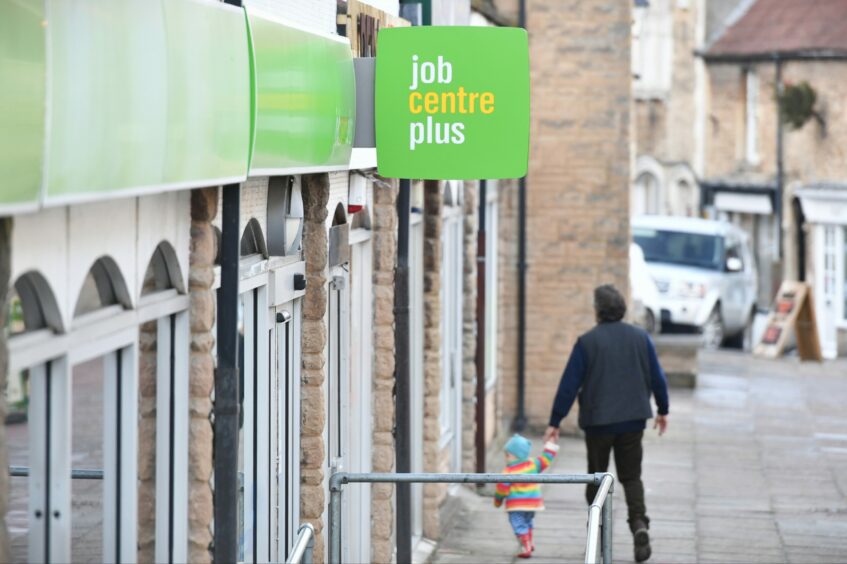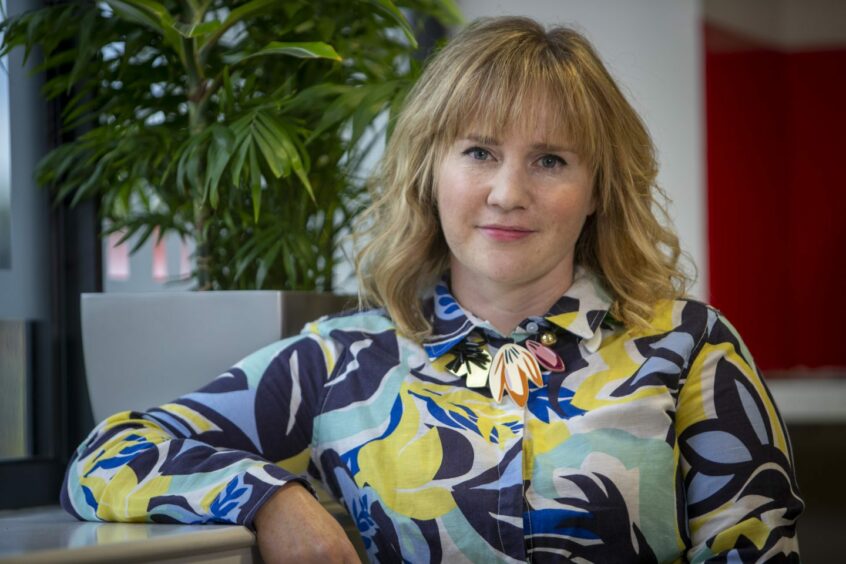The UK’s central bank has warned the UK economy is headed for its longest recession in a century, so what does it mean for people born after 1981?
As the Bank of England warned the country is facing a “very challenging” two-year slump with unemployment likely to nearly double, we spoke to an Aberdeen financial specialist who offered three top tips for Millennials and Generation Z to help with the coming trouble.
The bank revealed the bad news that the economy was facing recession as it hiked base rates to 3% – their highest level in 15 years.
The rise in base rate is likely to add to costs for homeowners and buyers – with many Millennials having just bought or contemplating buying homes.
What is a recession?
A recession is when the economy – as measured by gross domestic product or GDP – shrinks for over six months, or two quarters.
GDP measures the value of goods and services produced in a country.
Typically companies make less money, pay may fall and unemployment rises during a recession.
Alongside this, the cost of living is rising at its fastest rate in 40 years, leaving many households facing hardship.
When was the last recession?
The UK economy dipped into recession during the Covid pandemic when many businesses were forced to shut down due to restrictions on trading and travel.
It only lasted six months but the sharp decline in GDP was the steepest drop since records began in 1948.
The so called “great recession” took place in 2007/9 in the wake of the global banking crisis.
The crisis led to the worst recession since the 1930s and lasted five quarters.
During this time, many Millennials will have just been coming of age with the oldest being 27 years old when the slump took hold.
The BoE said on Thursday that Britain’s economy would shrink for eight three-month quarters in a row, having already entered a “challenging” downturn this summer.
While it will not be the UK’s deepest downturn, it will be the longest since records began in the 1920s, the bank said.
What does a recession mean for Millennials and Generation Z?
Jenny Madhoo is the founder and creator of Aberdeen-based SpringGen, a financial advice platform for Millennials, those born after 1981, and Generation Z, who are born after 1996.
Ms Madhoo first thought of the idea of helping younger people with their finances in 2019.
She found there were more young professionals looking for advice but fewer products and services aimed at people with lower levels of savings or assets.
The firm launched in 2021 and has been growing steadily.
She said her young clients typically have some assets and savings but not six figures’ worth which is the level financial planners tend to work with.
“A typical client in their early thirties are on the property ladder,” she said.
“They have saved really hard to that point. And maybe they are starting to build up their savings again and thinking what is the next step?
“If they have some cash in the bank but maybe they have never invested before, they need someone to help them get onto the next rung of the ladder.”
Here are her three tips for surviving a recession.
Tip 1: Have a savings cushion
The key risk of any recession is potentially losing a job.
She said: “In terms of preparing for the worst then job number one from a financial planning perspective is making sure you have a cash emergency buffer if that were to happen.
“In an ideal world, at least three months worth of household costs in a cash savings account.
“More than three months would be great but three months is a starting point if they don’t have anything saved yet – appreciating that the cost of living is not going to make it easy to save that up.”
Tip 2: Invest cautiously
She said none of her clients have asked her about the impact of recession – yet.
“The thing I am hearing most is more to do with cost of living increasing,” she said.
“They have their cash savings and they are ready to do some more long-term investing but they are now trying to hang back on that because they think they might need the money if their heating bill goes up this winter.
“This is fine, because if you are putting money towards investments you don’t want to be in a position where you have to pull it out again in the short term.”
In another aspect of the current global market turmoil is how it affected investments such as stocks and shares.

She said: “The stock market is not behaving itself – so if you’ve put money in investments recently they are probably going to be worth less than when you put them in. You don’t want to be pulling out of investments like that if you can possibly help it.”
For young investors who haven’t experienced such volatility in the value of their shares, she has a piece of advice: “Try not to make rash, fear-based decisions at the moment.
“If you are thinking about investing, it should be a long-term exercise and what we are seeing right now is short-term noise.”
She doesn’t advise Millennials and Gen Zs who are already investors on buying cryptocurrencies or crypto products because they are unregulated.
“This time last year everyone was banging on about Bitcoin because it was climbing in value but then it tanked – suddenly it’s all gone a bit quiet on the crypto front. People only shout about these things when they are doing well.”
Tip 3: Reduce debt and budget
With the recession on the one hand and the increase in base rate and the spiralling cost of living on the other, people’s finances are facing a “double whammy” she said.
“People who have got loans are facing a potential challenge. As the base rate goes up their credit cards’ interest rate is linked to that and those might increase so keep an eye on that.”
For those who have embarked on buying a home, mortgages are also a cause for concern.
“If they are on a tracker mortgage that might have to increase,” she said.
“A lot of people do fixed-term mortgages but the problem is if you took a fixed-term two years ago, then it’s bad luck timing-wise. That might be hitting them in the wallet for the next wee while.
“If you are unlucky that your mortgage comes up for renewal now there’s not a huge amount you can do about that except be prepared or maybe make savings elsewhere on your outgoings to make the extra cost of that.”
Nor are renters exempt from rising costs of mortgages.
“Even if you are renting your landlord’s mortgage payments might have gone up and they might pass that on to you.”
What next?
Ms Madhoo says she is looking towards better times.
“I’m an optimist and hoping for the best,” she said.
“General opinion seems to be some of the inflation we are seeing at the moment will calm down over the early part of next year – although I wish I had a crystal ball.”





Conversation